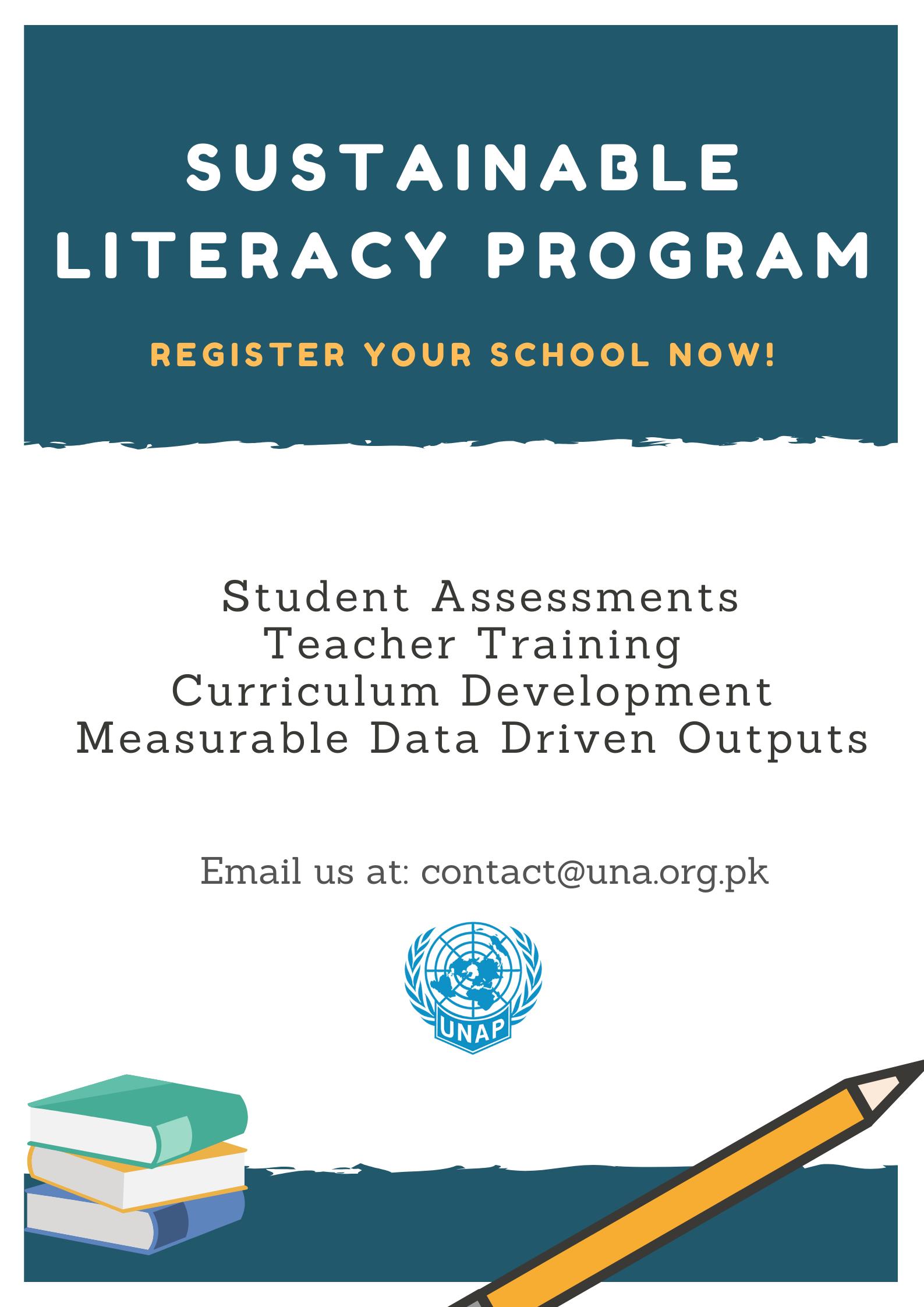The Sustainable Literacy Project (SLP) was initiated with the aim of improving the quality of education within the schools of Pakistan. The aim of this project is directly aligned with the 4th UN Sustainable Development Goal (SDG’s) i.e. Quality Education (SDG 4).
The quality of education relies heavily on the teachers, as the teachers are a key in ensuring that students get the requisite lessons that keep their minds ignited for seeking knowledge, students likes and dislikes for attending classes, or interests in a particular subject, can be linked to their teacher and his/her quality of teaching.
The challenge of improving quality of teaching by training teachers and supporting them with modern teaching aids, tools and methodologies, such as smart teaching techniques and interactive activities with students needs to be taken up so that teachers take pride in their jobs and help the youth in attaining high quality education.
| QUICK FACTS | |
| Duration: | 2018-Onwards |
| Location: | Karachi, Sindh |
| Project Details: | Download Full Project Brief |
| Further Details: | contact@una.org.pk |
QUICK FACTS
Duration:
2018-Onwards
Location:
Karachi, Sindh
Project Details:
Download Full Project Brief
Further Details:
contact@una.org.pk
Programme Outputs
- SLP’s objectives are to provide sustainable resources to promote quality education within Pakistan. A prominent focus is on stimulating the basic principle of “Standard Education for All’ i.e. providing quality education which is accessible to all.
- The issue of below par standard of education in primary and secondary schools within Pakistan will be addressed through assessing students, training teachers and use of vocational training as a tool to improve the standard of education throughout the schools in the country.
- Main emphasis of teacher training workshops will be pedagogical knowledge related with teaching methodologies and techniques as well as delivery of content-based skills for specific subjects. The project also aims to assist students who are unable to afford basic education.
Results achieved in 2019
Student Assessments were conducted from November 2018 to December 2019. The findings from the assessments conducted are provided below:
- A total of 270 students from 18 under-privileged schools were assessed for basic English and Mathematics.
- Overall, 65% students passed English assessment and 72% students passed Mathematics assessment. In comparison, Mathematics scores were more at par with the set benchmark score than English scores. An increasing trend was observed between the total number of students and combined marks.
- After the first round of workshop, a follow up was conducted; the schools were revisited with revised strategies and new content. The second round showed improvement with most of the participants rating us as “exemplary” as compared to rating us “high” during the workshop.
Way forward in 2020
- Conduct additional assessments across all schools previously visited to compare results and further work out deficiencies (if any).
- Expand the project to more schools and have a widespread network with multiple teachers on-board.
- Focus on acquiring funding to fund the Professional Education Foundation.
- Ensure monitoring and evaluation to maximize project effectiveness.
- Interventions to establish educational policies which focus on sustainable literacy.
- Planning and co-ordination with government officials to expand policy implementation all over Pakistan.
- Couple the Sustainable Literacy Project with the Professional Education Foundation.

